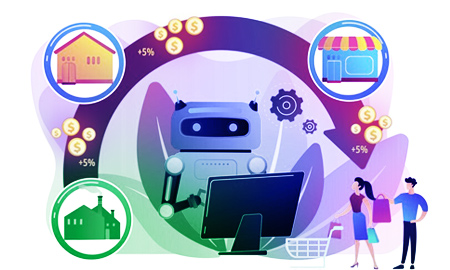Household debt in the United States has reached a staggering $16.5 trillion, and it continues to rise due to inflation, rising consumer prices, and soaring housing costs. The average American carries a debt of $90,460, including mortgages, private debt, and school loans, with nearly 80% of households having at least one type of debt. As debt becomes an inevitable part of life, debt collection remains a challenging task. FinTech companies are increasingly turning to AI-powered digital debt collection to strike a balance between recovering credit and enhancing customer experience (CX).
What is Artificial Intelligence?
Artificial Intelligence (AI) is a technology capable of performing complex tasks that typically require human intervention. AI leverages data to optimize operations and boost collection performance through analytics and machine learning capabilities. AI-powered applications can be trained to make decisions similarly to humans, supplementing human input in data-driven tasks. In debt collection, AI helps teams make informed decisions based on historical data and client profiles, speeding up debt settlement while increasing efficiency and productivity.
The Role of AI in Debt Collections
The FinTech industry operates with an inherent level of calculated risk due to uncertainties in its ecosystem. The influx of new debt, changing business conditions, and evolving legal frameworks contribute to the complexity of debt collection systems. Moreover, shifts in economic conditions and moving toward customer-centricity have led lenders to incorporate AI in debt collection strategies.
Traditional methods like emails, phone calls, and in-person interactions proved inefficient and time-consuming, leading to poor customer experiences. AI and machine learning are revolutionizing the debt collection industry, enhancing performance, scalability, and efficiency. Banks and non-bank lending institutions are incorporating AI to gain a competitive edge. By FY 2026, AI-driven value in sectors like BFSI, Industrials, Automotive, Medical Care, and Retail will significantly contribute to GDP growth. FinTech is a prominent use case for AI in BFSI.
Benefits of AI in Debt Collections
- Improved Collection Rates: AI-powered predictive analytics evaluate historical data and borrower reactions to enhance performance, providing insights that help improve debt recovery rates.
- Tailor-made Outreach with Automated Communications: AI identifies channel trends and speeds up decision-making regarding borrower engagement. By understanding borrower demographics and other influencing factors, lenders can personalize the debt collection process to meet each borrower’s unique needs.
- Optimized Solutions: AI-powered tools help recovery teams manage the default surge, offering empathetic and high-quality service to borrowers. These tools create customized solutions for different borrower groups, prioritizing communication and support.
- Scaling up Human-like Interactions: AI technology automates many aspects of debt collection, reducing the need for human interaction. AI-powered chatbots handle initial contact with debtors, gather relevant information, and offer payment options, allowing human agents to focus on complex tasks.
- Data Analysis: AI-enabled automated debt collection processes analyze large volumes of data to identify patterns and predict debtor behavior. This helps lenders proactively address delinquent accounts and implement more effective debt-collection strategies.
- Meeting Compliance Requirements: AI algorithms ensure compliance with complex and frequently changing regulations. Automated systems reduce fraud and non-compliance risk, a critical concern for lenders.
- Improved Agent Efficiency: AI automates routine tasks in contact centers, freeing up human agents for more complex issues. AI provides valuable customer insights and optimizes future communication strategies, potentially saving significant labor costs.
Conclusion
AI-powered debt collection offers long-term benefits for both lenders and borrowers. By integrating technology and behavioral science, lenders can better understand borrowers, boosting collection rates. Logical automation reduces human biases and errors while fostering a customer-centric approach. Organizations must prioritize long-term borrower relationships as technology advances and overcome collection challenges by incorporating AI into daily operations.
Ready to transform your debt collection process with AI? Contact Fusion CX today to learn more about our advanced digital solutions and how we can help you achieve unparalleled success in debt recovery.


